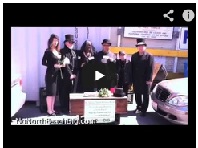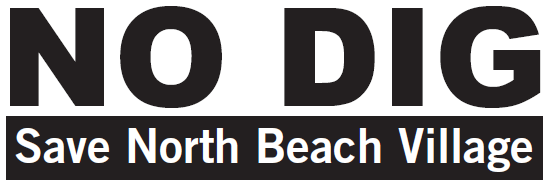From Zack Marks web site (circa July 2011)
The Central Subway project is complex, ambitious, extremely expensive, and controversial. The July 7th Civil Grand Jury report entitled "Central Subway: Too Much Money for Too Little Benefit" includes a Muni management and funding assessment, differences between the T-Third and Central Subway projects, an overview of the Central Subway plan, and findings/recommendations.
Concluding that the Central Subway project should be redesigned, the Civil Grand Jury contends that the present project fails to answer San Francisco's transportation needs. The Central Subway will start at an aboveground station at Fourth St. and Brannan St. and then travel underground to the Moscone Center, Union Square and Chinatown. In order to make this connection, the current T-Third route will no longer be directly connected to the Muni Metro. There are no plans to address existing problems on the Stockton corridor before project completion. By choosing a route traveling up Stockton, only Chinatown is served ignoring service to the Financial District. Had the subway been on Kearny, both the Chinatown community and the Financial District could have been served. According to the SFMTA, riders will lose connections, and "to get from the Union Square/Market Street Station to the Powell Street Muni Metro Station is about a thousand feet" or three football fields. Ignoring current transportation trends, there is also no effective transfer to the BART system. If connectivity is the overarching goal of the project, then its design is seriously flawed. The Central Subway will pass underneath the BART tunnel at the Powell Street station. According to a BART official, construction of this segment of the Central Subway tunnel could have adverse impacts on the BART Powell Street tunnel. For example, water displacement and soil removal occurring during construction "could affect the integrity of BART's tunnel."
The SFMTA is in the final stages obtaining full funding to build a subway of 1.7 miles, which is the same distance as the Golden Gate Bridge. The current cost of this project is $1.578 billion, or $176,000 per foot of construction making the Central Subway the most expensive 1.7 miles of construction in San Francisco history. In addition, the project is the most expensive public transit plan currently considered for federal funding under the New Starts Program and Muni's single largest capital project. The Central Subway's financial planning appears seriously flawed. Cost estimates have risen 143% from 2003 to 2011. The project has a pattern of sharply rising estimates: from $648 million in November 2003, to $763 million in 2004, to $994 million in 2006, and now to $1.578 billion. Funding will come from the Federal Government ($966 million), the State of California ($488 million), and the City of San Francisco from Proposition K ($124 million). The SFMTA's Risk and Contingency Management Plan for the Central Subway project allocates $262,809,536 for contingencies. The project is expected to cost approximately $1,315,490,464 and an extra $262,809,536 is included in the budget as a precaution. This represents a 22% contingency, and San Francisco will be responsible for any cost overruns, which could be substantial. The SFMTA has allocated an appropriate amount of the budget for the Central Subway project to cover contingencies and cost overruns. The Civil Grand Jury recommends hiring an independent entity to investigate whether the proposed budget is a realistic estimate.
Regarding Muni, funding comes from numerous sources including federal grants, local grants (Proposition K), San Francisco general funds, the SFMTA revenue stream (parking fines), and fare box collections. Over the next five years, Muni has planned for $4.5 billion in capital needs. Currently, SFMTA has only been able to identify sources for $2 billion. The source for the remaining $2.5 billion that SFMTA needs has yet to be identified. The SFMTA must cut $30 million in spending and generate $50 million in new revenue annually or the SFMTA will face a $1.6 billion deficit over the next 20 years. Muni has had financial troubles in recent years and absent an unforeseen windfall, will continue to have financial troubles in the future. Given the current and projected state of Muni's funding, difficult times lie ahead. This will impact the agency's ability to deliver the level of performance demanded by the charter. Raising passenger fares can only have a minimal impact on Muni's financial shortfalls.
New financial stresses are adding to Muni's already-existing financial troubles, which will potentially worsen the state of Muni service. Recommending hiring an independent auditor, the Civil Grand Jury argues that Muni is not providing adequate service to its customers and has done a poor job of even nearing the requirements of Proposition E. The addition of a new subway line will add to an existing operating deficit and could stretch the existing maintenance environment to the breaking point. The Civil Grand Jury believes SFMTA is currently unable to adequately maintain its fleet in good working order. Adding a new capital project while struggling to meet current needs could overwhelm the agency's ability to deliver service.
The Civil Grand Jury believes that the SFMTA is unreasonably optimistic that problems with the T-Third project will not reoccur during the Central Subway project. There was an 18-month delay on finishing the 3-year T-Third project, which represents a 50% delay. With a commensurate or fractional delay on the 7-year Central Subway, the project will exceed current cost and contingency projections. In addition, the Civil Grand Jury is concerned about incorrect factual details published by the SFMTA, which the Jury sees as a symptom of a bigger problem. The Jury finds that the lack of care in the SFMTA's public communications can lead to a lack of confidence in their ability to accurately communicate internally and externally.
The Civil Grand Jury also addressed numerous miscellaneous problems. According to the Jury, the SFMTA's inability to recognize the obvious need to allot time to new train operators makes the Jury lose faith in the agency's ability to efficiently manage its own projects. Another issue is that it seems disingenuous that the SFMTA would point to the station design as the reason for not including moving sidewalks as they themselves designed the stations. In addition, there is no apparent justification for mezzanines in the Central Subway stations with proof-of-payment as the sole method of fare collection. Lastly, the SFMTA is planning to buy four new hybrid boarding light rail vehicles for the Central Subway. However, all stops within the Central Subway and along the remainder of the T-Third route use level-boarding. Therefore, a vehicle dedicated to level-boarding would suffice.
Citing ballooning construction costs, design flaws, anticipated cost overruns, and impacts to an overextended Muni budget, City Attorney Dennis Herrera concludes, "On the basis of compelling evidence — and after discussions with project proponents and opponents alike — I have concluded that the Civil Grand Jury is correct in its assessment that the Central Subway should be redesigned." Herrera points out that cost projections have increased from $647 million in 2003 to $1.6 billion in 2011, and that the current plan does not connect to BART or Muni on Market St. In addition, Herrera contends that engineers have been forced to cut corners on station design, reducing platform lengths, and limiting passenger capacity as a result of cost overruns. According to Herrera, "In the final analysis, the evidence is persuasive that we must honestly reassess our commitment to a deeply flawed Central Subway project — and that we should do so before it turns into a fiasco every San Franciscan regrets."
During the GAO meeting, Supervisor Chiu made statements defending the Central Subway project. According to Supervisor Chiu, "No great city regrets building a subway. The issues have been raised, asked, and answered. At some point we have to move on." The Civil Grand Jury harshly criticized the current plan and the SFMTA. The SFMTA claims that all questions have been asked and answered, and "it is now time to move forward." Supervisor Farrell cautioned the Civil Grand Jury to make their report factual and not sensationalize any issues. Supervisor Farrell motioned to agree with the recommendations except for recommendation four, and Supervisors Campos and Chiu supported the motion.
"Connecting People. Connecting Communities."


